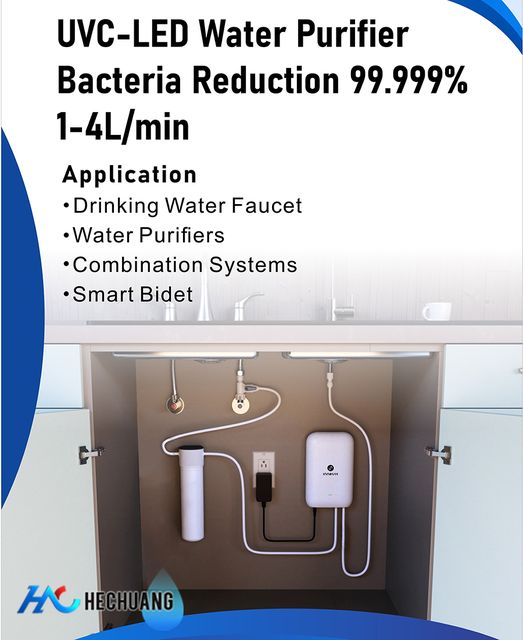
UV light is part of natural sunlight. It cannot be seen as UV light is between visible light and x-rays.
When UV light enters a microorganism its energy will damage the microorganism’s cellular function so that it will not be able to grow.
Yes. UV light is normally effective against all viruses, bacteria and protozoa. However, some microorganisms such as Cryptosporidium and Giardia have protective or thick cell walls that some low power UV light systems are not able to penetrate. (It is important to make sure the UV light disinfection systems are specifically designed to kill these microorganisms if necessary.)
No. UV light will only travel in a straight line so any shadow or obstruction will reduce its efficiency. Water that is not filtered can contain iron, manganese and other particles that can either absorb or scatter UV light reducing the effectiveness of the disinfection system. Microorganisms that are able to pass through protected by shadows created by dirt, debris or other microorganisms may be able to survive treatment.
Yes. It is important to filter water before treatment with a UV light to make sure that all suspended particles are removed. UV light is not a filter so microorganisms and suspended matter will not be removed from the treated water.
UV light disinfection systems require a continuous power supply to power the light bulb. If the power fails or falls below the correct operating level the UV light intensity will fail or fall and as a result the system will not be able to safely disinfect water. The Department of Health recommends that UV light systems are interconnected to water pumps so that in the event of a power failure untreated water will not be supplied.
No, UV light disinfection systems will only disinfect water at the point of contact. As soon as water leaves the UV light disinfection system recontamination from back flow, breaks and biofilms (slime) can occur as there is no residual disinfectant in the water. Well designed water treatment systems always locate UV light disinfection systems as close to the point of use as possible.
Yes, over time a biofilm (or slime) may grow in a water supply system treated with UV light. This may require occasional treatment with chlorine to remove any biofilm within the pipes. To remove biofilms flush all pipes with a 1mg/L solution of chlorinated water making sure to open all taps to allow all chlorinated water to drain.
Yes. All UV light systems will require maintenance. UV light tubes and lamps will require regular replacement. Teflon and quartz glass tubes within the unit will require cleaning to remove algae and other deposits. It is recommended that you follow the maintenance procedures specified by the manufacturer or product supplier.
Yes, it is recommended that you test treated water for the presence of microorganisms every month to ensure water is being adequately disinfected. Water samples should be tested by a National Association of Testing Authorities (NATA) accredited laboratory. Laboratories can be found in the yellow pages phone directory under the heading “Analysts”.
It is not necessary to further disinfect scheme drinking water. The Department of Health continually monitors the microbiological and chemical quality of drinking water supplied by all licensed scheme drinking water providers to ensure that it is safe to consume.
HC INNEST UVC Water Purifier is the best option.

For more information, inquiries or to book an interview please Contact:
Shenzhen Hechuang Hitech CO., LTD.
info@hc-hitech.com
Toll Free +86-755 2850 4426
Shenzhen Hechuang Hitech CO., LTD. is a National High-tech Enterprise, which has won a number of invention patent technology awards. We focuses on the Research, Development, Production and Application of UVC-LED Technology. It adopts innovative technologies of revolutionary optics and fluid science, which can kill bacteria and viruses in 0.2 seconds, with a killing rate of 99.9999%. Hechuang Hitech provides safer, more efficient and more humanized sterilization module design for Water Air and Surface Disinfection products.